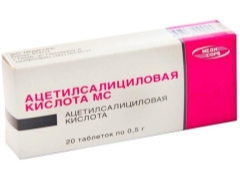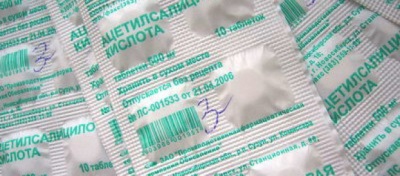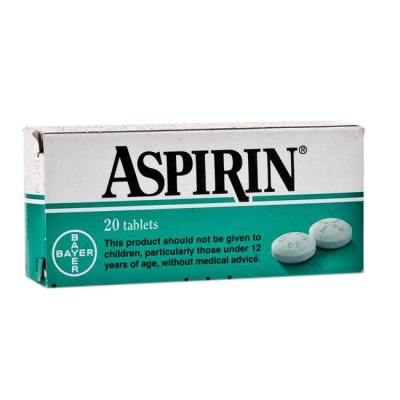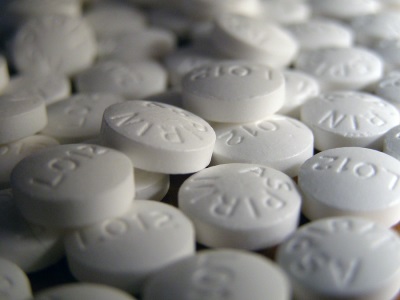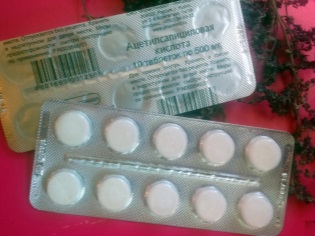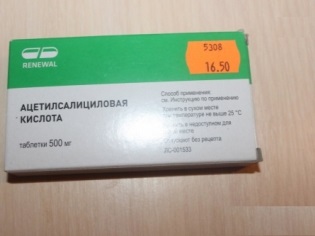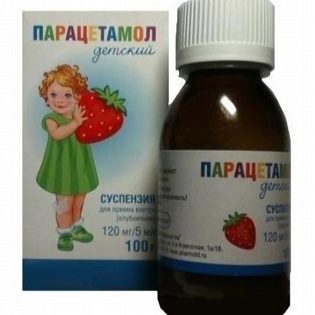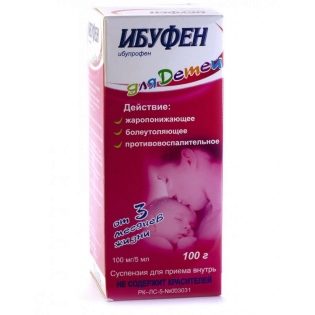Can I give children acetylsalicylic acid (aspirin)?
One of the very popular antipyretic drugs is the domestic drug Acetylsalicylic acid. Previously, it was often given to children at high temperatures or pains, but not for the first year, doctors have warned about the danger of using such a drug in children. At what age can you give a child acetylsalicylic acid? Is such medicine permitted in pediatric practice or is it really dangerous in childhood?
Composition and release form
The main ingredient in acetylsalicylic acid is a substance with the same name. The German company Bayer also releases this medicine under the patented name Aspirin. Most forms of drug release are pills. They can be ordinary, effervescent or in the shell, which dissolves in the intestine. Also Acetylsalicylic acid is found in the powder from which the effervescent drink is prepared.
How does it work?
Acetylsalicylic acid refers to drugs that are called nonsteroidal anti-inflammatory drugs. Like other members of this group of drugs, she noted anesthetic and antipyretic, as well as anti-inflammatory effect.
The decrease in body temperature after taking Acetisalicylic acid is due to the effect of such a compound on the hypothalamus. The drug acts on the temperature regulation center located in this area of the brain, as a result of which the regulation point shifts (becomes lower). In addition, heat transfer increases, and the processes of heat generation in the body under the influence of acetylsalicylic acid are reduced. A person begins to actively sweat, he has increased ventilation of the lungs and dilated blood vessels of the skin.
The anti-inflammatory effect of Acetisalicylic acid is provided by the binding of the drug with the enzyme "cyclooxygenase", responsible for making inflammatory mediators called prostaglandins. As a result, the formation of these substances is inhibited, because of which the supply of energy to the inflammatory processes stops.
A decrease in the blood concentration of a mediator called "bradykinin" is the basis of the analgesic effect of acetylsalicylic acid. Due to this, the medication reduces pain sensitivity. Also, the anesthetic effect of the drug is due to its effect on prostaglandins, because they increase the pain.
No less important action of acetylsalicylic acid is a pronounced antiplatelet effect. The drug affects the active substances, called thromboxanes, so the drug thins the blood and lowers the risk of blood clots. Such an effect is especially needed in adult patients (in old age).
For a description of an interesting experiment conducted on the action of aspirin on the human body, see the release of the program "To live healthy!":
Can I give to children?
Acetylsalicylic acid, as well as other drugs in which it acts as the main active ingredient or one of the active compounds, is not recommended for the treatment of children who have not turned 15 years old.
Once in pediatric practice, this medicine was prescribed both to younger children, and 2 years old, and 7 years old, but nowadays pediatricians prefer antipyretic drugs that are safer for children, because Acetylsalicylic acid assigned to a child can be a serious danger.

Indications
Knowing the effect of acetylsalicylic acid on the body, it can be assumed from which helps this medicine. He is appointed:
- For pain, for example, toothache, muscle or headache.
- At high temperature in adults.
- At high risk of blood clots.
- With rheumatism, inflammation of the heart muscle, or rheumatoid arthritis.
- For the prevention of lesions of the blood vessels of the brain and myocardial infarction.
Opinion of Dr. Komarovsky about taking acetylsalicylic acid during the temperature of the baby, see below:
Contraindications
Treatment with acetylsalicylic acid is prohibited:
- If you are hypersensitive to this medication.
- With a peptic ulcer, especially if it has worsened.
- If you have problems with blood coagulation.
- For aspirin asthma.
- During pregnancy in the first trimester and in the last months of gestation.
- When breastfeeding.
- With serious kidney disease.
- With liver disease.
Side effects
Like any other drugs, acetylsalicylic acid can cause allergies, such as urticaria, allergic rhinitis, or anaphylactic shock. Also, this medicine has ulcerogenic activity, that is, it is capable of provoking peptic ulcer disease or its aggravation.
The use of acetylsalicylic acid can also lead to:
- Disorders of the gastrointestinal tract. They are often manifested by nausea and heartburn. In some patients, the drug provokes vomiting or gastric bleeding.
- Urinary system problems. In rare cases, the drug causes renal failure.
- Violations of blood formation. Prolonged use of the drug leads to iron deficiency anemia, a decrease in the level of platelets and leukocytes.
- Bleeding. The risk of their appearance increases with prolonged treatment with acetylsalicylic acid. Bleeding from the nose, as well as bruises, occur with the slightest damage to the skin.
- Violations of the central nervous system. They occur due to high doses of medication and are manifested by headaches, dizziness, and tinnitus.
Separately, it should be noted that the side effect of acetylsalicylic acid in acute respiratory viral infections, such as the development of Reye's syndrome. This complication is often diagnosed in children under 15 years of age if they are given Aspirin for influenza, measles, chickenpox, or other viral infections. Its symptoms are liver damage and swelling of the brain, triggered by impaired metabolic processes in these organs.
The high risk of Reye's syndrome and possible complications after it explain why it is impossible to give Acetylsalicylic acid in childhood. This syndrome is dangerous development of coma and a large percentage of fatal cases. Even if it is cured, the child may experience developmental delay and nerve damage.
The program of Elena Malysheva gives a detailed account of the causes and effects of Reye’s syndrome in children:
Instructions for use
Tablets are drunk only after ingestion, drinking down with either plain water or some alkaline liquid, for example, alkaline-rich mineral water.
Dosage
At the age of 15 years and older patients with high temperature or moderate pain give from 40 to 1000 mg of acetylsalicylic acid at one time. Often, a single dose is 250 or 500 mg of the active substance, but the doctor must determine the more accurate dosage.
The drug is drunk 2-6 times a day, making a pause between doses for at least four hours.The maximum amount of acetylsalicylic acid per day for a child over 15 years old should not be more than 3 g.
How long can you take?
The duration of treatment with acetylsalicylic acid, if the drug is used to bring down the temperature, should not be more than three days. If the purpose of using the drug is an analgesic effect, the reception should not be longer than seven days.
Overdose
If you drink acetylsalicylic acid in a dose of more than 4 grams per day, it can cause severe damage to the lungs and liver, as well as to the brain and kidneys. Poisoning with this drug leads to severe perspiration, hearing loss, skin allergies and other negative symptoms. For treatment, immediate gastric lavage and referral to a doctor are indicated.
Terms of purchase and storage
You can buy acetylsalicylic acid at any pharmacy. This is an affordable medication for which you do not need to show a prescription. It is necessary to keep the medicine at home at room temperature and in a dry place, away from children. Depending on the manufacturer, the shelf life of the tablets is 3-5 years.
Reviews
About the use of acetylsalicylic acid in children respond differently. There are mothers who do not see any particular danger in such a preparation and give it during a fever to a child. However, many more parents and pediatricians refuse treatment with this remedy in childhood, preferring other antipyretic medications allowed for children.
Analogs
The most popular analogue of acetylsalicylic acid in the world is Aspirin. This German medicine contains the same active ingredient, therefore the limitations and recommendations for treatment with Aspirin in childhood will be the same.
A safer for children option of antipyretic drug is considered Paracetamol or Ibuprofen. Both of these medications can be given from an early age - from three months, and if the doctor sees the need, Paracetamol can be prescribed even earlier - from 1 month. Such antipyretic produce in a more convenient form than tablets (they are represented by suspension, syrup, rectal suppositories). Both drugs are very effective in fever and pain syndrome.
The difference between the use of aspirin and paracetamol, you can find out by watching the following video of Dr. Komarovsky.
